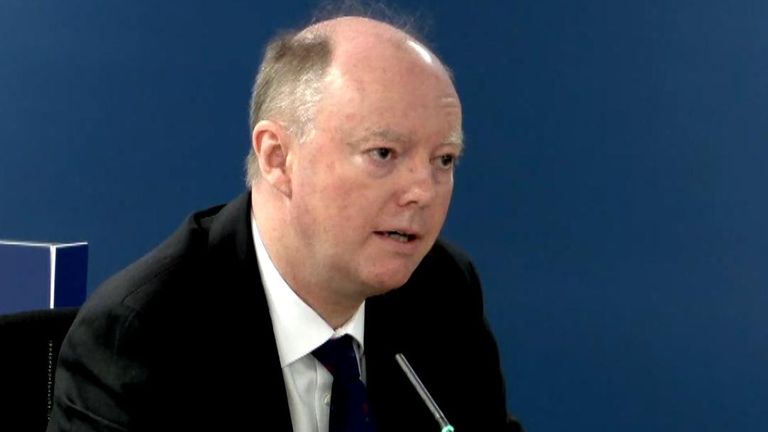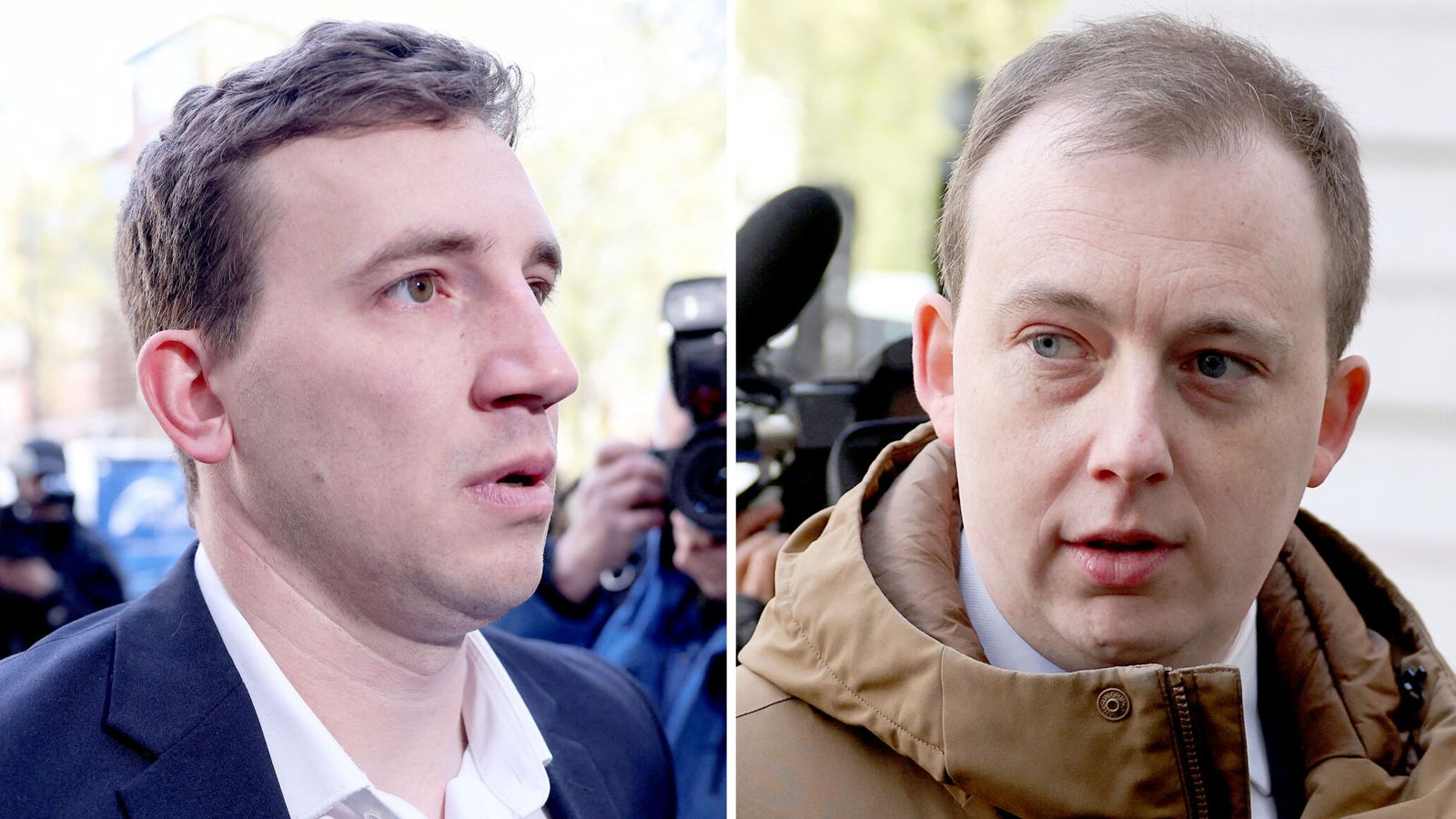
Allowing mass gatherings in the early days of the pandemic was “logically incoherent” to the public and gave a false impression of “normality,” Professor Sir Chris Whitty has said.
England’s chief medical officer made the admission as he appeared as a witness at the official COVID inquiry.
The government came under criticism for allowing the Cheltenham Festival to take place over four days in mid March despite the emerging crisis.
Politics news – latest: Sir Chris says Boris Johnson had ‘unique’ decision-making style
It also gave the green light to a Champions League game between Liverpool and Atletico Madrid at Anfield, which saw a capacity crowd of more than 50,000 fans gather on 11 March.
The first national lockdown – when then prime minister Boris Johnson told people they “must” stay at home – happened on 23 March.
Sir Chris said that while he was “taking ownership” of the advice given to the government by the Scientific Advisory Group for Emergencies (SAGE) which said the risks of crowded outdoor events were relatively low, he nevertheless believed it projected the wrong image to the public.
He told the inquiry that not enough attention was being paid to the message “that seeing mass gatherings going on signalled to the general public that the government couldn’t be that worried”.
Read more:
Autumn statement unlikely to put big dent in tax burden – here’s why
‘Rishi thinks just let people die’: claim revealed in COVID diary
“The problem was not the gatherings themselves, which I don’t think there is good evidence that they had a material effect directly, but the impression it gives [the public] of normality at a time when you are trying to signal anything but normality.
“It is in a sense technically correct and logically incoherent to the general public, quite reasonably.”
His evidence chimed with that given by Boris Johnson’s chief adviser at the time, Dominic Cummings, who told the inquiry last month there was a “twisted logic” to allowing mass gatherings to take place.
Elsewhere in the session, Sir Chris was critical about the government’s response time to the threat from COVID, saying it was not as “electrified” as it should have been.
He was shown a readout of a meeting held on 4 February, when he told Mr Johnson the UK death toll was likely to be in the region of 100,000 to 300,000.
Sir Chris said that despite the figures, COVID was still treated as a health issue rather than an “existential threat”, with then health secretary Matt Hancock left to chair the next COBRA meeting.
He suggested the government may have acted differently if that kind of death toll was incurred through a different event, such as a terror attack.
“The point I would like to make on this – because I think this is where we do need to think very seriously in government – is that had, let us say, the director general of MI5 come in or chief of general staff come in and said there’s a possibility of 100,000 people sadly dying from terrorist attack or an attack on the UK, the chances this would have been the response in the letter or the system continued as it did – the next COBRA still chaired by the secretary of state for health – is quite small,” he added.
However, Sir Chris stressed his criticisms were intended to be levelled at the system of government rather than individuals.
He said the way Mr Johnson – who was described as being “bamboozled” by the science by former adviser Sir Patrick Vallance – took decisions was “unique to him”.
“It was quite often chaotic, but actually I’d be very doubtful if it wasn’t chaotic in multiple other governments, and in fact, that is what our fellow advisers from other countries said,” he said.
Asked about the former prime minister’s decision-making process and numerous allegations of veering between positions, Sir Chris said: “I think that the way Mr Johnson took decisions was unique to him.”
He also believed “with the benefit of hindsight” that the first lockdown in March 2020 came “a bit too late”.












